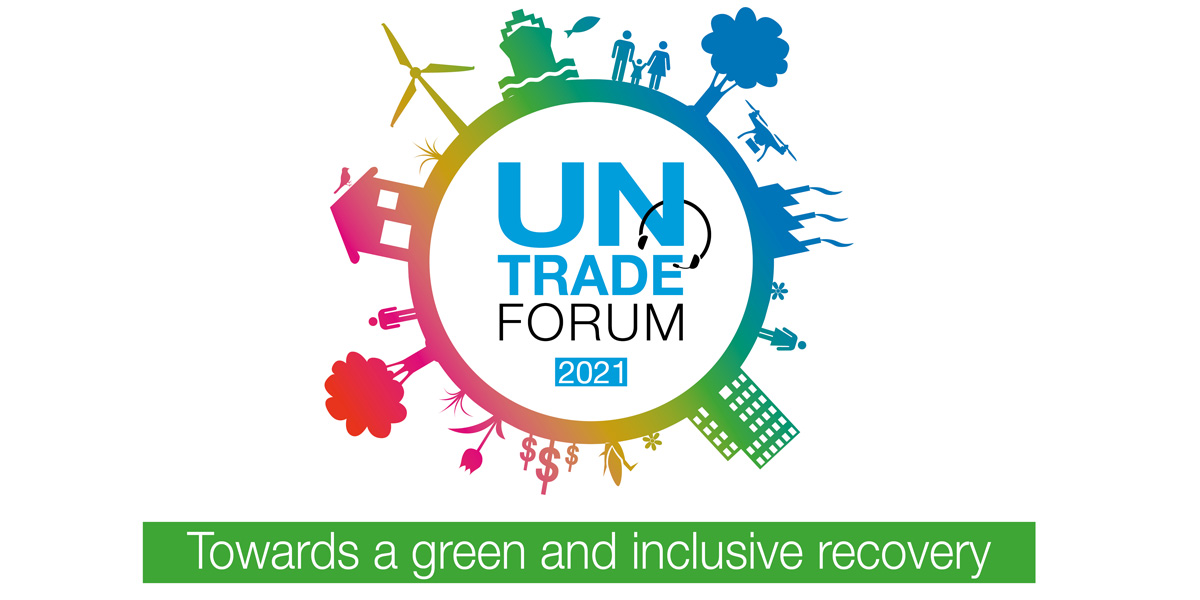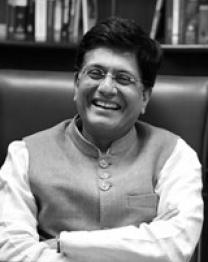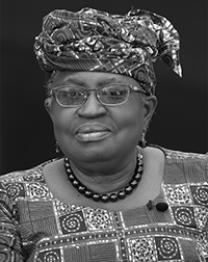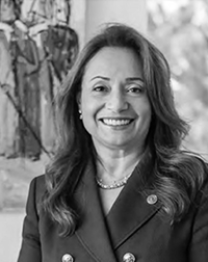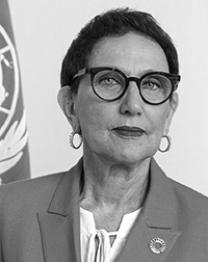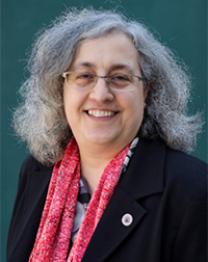The COVID-19 pandemic has been a health and economic crisis of tragic proportions for lives and livelihoods everywhere. It threatens to derail our aspirations for the world we want by 2030. Protecting lives while accelerating the recovery process has become the world’s priority.
Enhancing global trade is indispensable for the recovery from this crisis. Trade is a source of income, jobs and opportunities for women and men in developed and developing countries. The crisis has highlighted the fundamental role of trade in allowing goods and services to move from where they are efficiently produced to where they are needed.
The crisis has exposed the fault lines of our development path, notably the one that depends on effective participation in just-in-time global supply chains. The crisis has also exacerbated the vulnerability and inequality present in our world. But COVID-19 is not the only crisis we face. A climate and environmental emergency threatens to compromise the progress we have achieved and the development prospects of future generations. Thus, a recovery is not enough. It must be green and inclusive, and trade and trade policy play a critical role in this process.
Focus - How to make trade and trade policy foster a green and inclusive recovery?
With the COVID-19 crisis and the climate emergency negatively impacting the three dimensions of sustainable development (economic, social and environmental), what the world needs is a more coherent policy mix to protect the planet and ensure more inclusive development. Inevitably, this must include trade policy. However, designing a coherent policy mix is a challenge. Some policy tools may contribute to environmental sustainability but may appear protectionist, while some trade-enhancing economic policies may appear adversary to the progress of a green/blue economy.
High-level segment - Towards a green and inclusive recovery: Trade after the crisis
The high-level segment will discuss the lessons that could be drawn from the current crisis and the policy responses needed to make sure that trade can be key to a green recovery process. The panel will also address how to reduce trade tensions and strengthen multilateralism, ensuring that trade does not revert to a pre-crisis status quo.
Speakers for this event will comprise leaders of international organizations, national ministers, regional commissioners and leading academics.
Session I: The green side of trade policy, what can we do?
This session will discuss the main national and multilateral trade elements needed to foster climate change action, and green and circular economy solutions. In particular, speakers will address how trade policies and rules can better support green development, and how the principle of “common but differentiated responsibilities” and the need for trade-climate readiness can be mainstreamed within the trade system.
Session II: Towards a more inclusive world, what can trade do?
This session will address how policymakers can ensure trade contributes to inclusive recovery and how the gains from trade can reach the most vulnerable groups, including women, youth and migrant workers. Speakers will also discuss the preconditions for developing countries to benefit from the growing digital economy and how best to protect consumers in the digital era.
Towards UNCTAD15
These discussions on a green and inclusive recovery from the pandemic will touch upon some of the most important contemporary trade debates. As such, the 2021 UN Trade Forum provides a key stepping stone towards UNCTAD15, the quadrennial conference being held in October 2021 that will determine the priorities and work programme of UNCTAD over the next four years.
17th Raúl Prebisch Lecture by Esther Duflo
Since 1982, the Raúl Prebisch lectures have offered renowned intellectuals and heads of state a platform to address critical global issues. The 17th Lecture will given by Nobel Laureate Esther Duflo on 15th June 2021.
Esther Duflo is the Abdul Latif Jameel Professor of Poverty Alleviation and Development Economics in the Department of Economics at the Massachusetts Institute of Technology and a co-founder and co-director of the Abdul Latif Jameel Poverty Action Lab (J-PAL). In her research, she seeks to understand the economic lives of the poor, with the aim to help design and evaluate social policies. She has worked on health, education, financial inclusion, environment and governance.
About the UN Trade Forum
The UN Trade Forum was created as a space for dialogue on how trade can be harnessed for a more prosperous, inclusive and sustainable world.
The 2019 forum focused on the topic of climate change and the SDGs, and included the participation of many prominent speakers, including: Mia Amor Mottley, Prime Minister of Barbados; Allen Chastanet, Prime Minister of Saint Lucia, and Chairman of CARICOM; Hussain Rasheed Hassan, Minister of Environment, Ministry of Environment, Maldives; and Fekitamoeloa Katoa ‘Utoikamanu, United Nations Under-Secretary-General and High Representative for the Least Developed Countries, Landlocked Developing Countries and Small Island Developing States.
Ms. Isabelle Durant, of Belgium, is Deputy Secretary-General of UNCTAD. From February to 12 September 2021, she headed the organization as Acting Secretary-General before the appointment of a new UNCTAD Secretary-General on 13 September 2021. Prior to holding this position, she served the organization for over three years as UNCTAD’s Deputy Secretary-General.
Ms. Durant had a distinguished career in Belgian and European politics. She held the offices of Deputy Prime Minister, Minister of Transport and Energy and Senator in the Belgian Government. She also served as Vice-President of the European Parliament and Presidency of the European Union Council of Ministers of Transport.
Ms. Durant has a wealth of experience collaborating with civil society and the private sector as well, notably as the Vice-President responsible for relations between the European Parliament and civil society. Finally, Ms. Durant has held posts as a senior consultant on the empowerment of women in local government for the UNDP and as a member of Parliament of the Brussels-Capital Region in Belgium.
Piyush Goyal is the Minister of Railways; Commerce & Industry; Consumer Affairs and Food & Public Distribution, Government of India. Deputy leader of the Rajya Sabha.
He was earlier the Minister of Railways and Coal (2017-19). He has also held additional charge of Minister of Finance and Corporate Affairs twice in 2018 and 2019. Earlier he was Minister of State (Independent Charge) for Power, Coal, New & Renewable Energy (2014-2017), and Mines (2016-17). Mr Goyal’s tenure has seen Indian Railways achieve its best ever safety record in 2018-19. This was achieved through holistic measures such as elimination of Unmanned Level Crossings (UMLCs) from the broad gauge network, production of safer coaches etc. Additionally, Mr. Goyal oversaw the launch of the first indigenous semi-high speed train Vande Bharat Express between Delhi and Varanasi.
The Power, Coal and New & Renewable Energy ministries led transformational changes in India’s power sector including the fast tracking of electrification of the nearly 18,000 unelectrified villages in some of the remotest and inaccessible parts of the country, the roll out of the most comprehensive power sector reform ever (UDAY), the success of the world’s largest LED bulb distribution programme (UJALA) for energy efficiency, and massive proliferation of renewable energy through the world’s largest renewable energy expansion programme. Other achievements include the elimination of coal shortages to improve the energy security of India and successful conduct of transparent e-auctions of coal blocks. He also received the 4th Annual Carnot Prize in 2018 recognising the pathbreaking transformations in India’s energy sector. During his 35 year long political career, Mr Goyal has held several important positions at different levels in the world’s largest political party, the Bharatiya Janata Party (BJP) and is in its National Executive. He has been the National Treasurer of the Party. In the 2019 Indian General Elections, he was a member of the Manifesto and Publicity Committees. He also headed the BJP’s Information Communication Campaign Committee for the Indian General Elections 2014.
Mr Goyal has had a brilliant academic record – all-India second rank holder Chartered Accountant and second rank holder in Law in Mumbai University. He was a well-known investment banker and has advised top corporates on management strategy and growth. He also served on the Board of India’s largest commercial bank, the State Bank of India and Bank of Baroda. He was also nominated by the Government of India to the Task Force for Interlinking of Rivers in 2002. His father, Late Vedprakash Goyal was Union Minister of Shipping, and the National Treasurer of the BJP for over two decades. His mother Chandrakanta Goyal was elected thrice to the Maharashtra Legislative Assembly from Mumbai. He is married to Seema, an active social worker, and has two children – Dhruv and Radhika, who have both graduated from Harvard University, USA.
Dr Ngozi Okonjo-Iweala is the Director-General of the World Trade Organization (WTO). She is an economist and international development expert with over 30 years of experience.
She was Chair of the Board of Gavi, the Vaccine Alliance (2016 – 2020), the African Risk Capacity (2014 – 2020) and Co-Chair of The Global Commission on the Economy and Climate. Previously, she served as Senior Advisor at Lazard and sat on the Boards of Standard Chartered PLC and Twitter Inc.
Dr Okonjo-Iweala was appointed as an AU COVID-19 Special Envoy and WHO COVID-19 Special Envoy. Dr Okonjo-Iweala served twice as Nigeria’s Finance Minister (2003-2006, 2011-2015), the first woman to hold the position, and spent a 25-year career at the World Bank rising to the No.2 position of Managing Director.
In 2020 Dr Okonjo-Iweala was named Forbes African of the Year. She has been ranked by Fortune as one of the 50 Greatest World Leaders (2015) and by Forbes as one of the Top 100 Most Powerful Women in the World consecutively for four years. She holds a Bachelor’s in Economics from Harvard University and a PhD from the Massachusetts Institute of Technology.
Valdis Dombrovskis is the European Commission Vice-President responsible for the Euro and Social Dialogue, also in charge of Financial Stability, Financial Services and the Capital Markets Union. Previously, he served as Prime Minister of the Republic of Latvia for three consecutive terms from 2009 to 2014, becoming the longest serving elected Head of government in Latvia’s history.
Before that, Dombrovskis was elected twice as a Member of the European Parliament as part of the Europeans People’s Party (EPP) Group. He was also Head of the Latvian Delegation in the EPP Group. He served as a Member of the Saeima, the Latvian Parliament in 2004 and in 2014.
He also served as Minister of Finance from 2002 to 2004. Previously, he worked as a senior economist and chief economist at the Bank of Latvia from 1998 to 2002. Dombrovskis holds a BA in physics from the University of Latvia and in economics from Riga University of Technology. He also holds an MA degree in physics in from the University of Latvia.
Dr. Amani Abou-Zeid is the twice-elected African Union Commissioner in charge of Infrastructure, Energy & ICT. For more than 30 years, Dr Abou-Zeid has served in leadership positions in international organizations and has amassed a remarkable mix of experience from across continents and stakeholders.
She has managed AfDB largest operational portfolio and implemented national and continental multi-sectoral development programmes, including the world’s largest solar power plant. She launched the Single African Air Transport Market, African Single Energy Market, First African Digital Transformation Strategy as well as 2nd 10-year Programme for Infrastructure Development in Africa - thus, delivering on major continental initiatives for African Integration under African Union Agenda 2063.
An Egyptian national, Dr Abou-Zeid holds a BSc in Electrical Engineering, Cairo University; MBA, Université Senghor; MPA, Harvard University; and Ph.D. Economic Development, The University of Manchester.
Dr. Abou-Zeid sets the example for women in STEM and in leadership positions; She is long named and recognised as champion of gender equality and is often voted one of Africa’s most influential women.
Rebeca Grynspan, of Costa Rica, became UNCTAD's eighth Secretary-General on 13 September 2021 and is the first woman to lead the organization.
Prior to her UNCTAD appointment, she was the Ibero-American secretary-general from 2014 to 2021, also the first woman to head the organization. During her mandate, she has coordinated the 22-member Iberoamerican Conference and led four key summits of Heads of State and Government.
In 2010 she was appointed Under-Secretary-General of the United Nations and Associate Administrator of the United Nations Development Program (UNDP) and prior to that was UNDP Regional Director for Latin America and the Caribbean.
Prior to joining the United Nations, Ms. Grynspan served as Vice-President of Costa Rica from 1994 to 1998. She was also Minister of Housing, Minister Coordinator of Economic and Social Affairs, and Deputy Minister of Finance. In 2021 she was named Special International Advisor to the newly created Economic and Social Council of Argentina and invited to join as member of the G20 High-Level Independent Panel on Financing the Global Commons for Pandemic Preparedness and Response.
In addition to her experience as a lecturer and advisor to several international organizations, she has been actively involved in key United Nations initiatives, such as the Millennium Project's Task Force on Poverty and Economic Development and the High-level Panel on Financing for Development.
In 2014 and 2015, she was recognized as one of the 50 leading intellectuals of Latin America. And she was recognized as one of the 100 most powerful women in Central America by Forbes magazine.
Ms Grynspan holds a degree in Economics by the University of Costa Rica and a MSc in Economics by the University of Sussex. She has been awarded a Doctorate Honoris Causa by the University of Salamanca, the University of Extremadura and the European University of Madrid in recognition of her outstanding professional achievements.
Augusto Santos Silva was born in Oporto in 1956. He has a PhD in Sociology from ISCTE – Instituto Universitário de Lisboa (1992) - and is a Professor in Faculdade de Economia da Universidade do Porto. His political career has included many high-ranking posts in the Portuguese Government as Minister for Foreign Affairs (2015-2019), Minister of National Defense (2009-2011), Minister of Parliamentary Affairs (2005-2009), Minister of Culture (2001-2002), Minister of Education (2000-2001) and as Secretary of State for Educational Administration (1999-2000). He was also a Member of Parliament (2002-2005 and 2011). Between 1998 and 1999 he was Dean of Universidade do Porto and Chairman of the scientific council of Faculdade de Economia do Porto. Affiliated with Socialist Party since 1990, he is – nowadays – member of its national political commission. He has several books published related to Sociology and Political Ideas.
The Rt Hon Patricia Scotland QC is the 6th Commonwealth Secretary-General. She was born in Dominica and was their candidate for the post at the Commonwealth Heads of Government Meeting (CHOGM) in Malta in 2015. She is the 2nd Secretary-General from the Caribbean and the 1st woman to hold the post.
Patricia Scotland was born in the Commonwealth of Dominica. She completed her LLB (Hons) London University at the age of twenty and was called to the Bar at Middle Temple at the age of twenty-one.
Her career has been marked by achieving a number of extraordinary firsts, not least of which was to be the first woman in the more than 700-year history of the office to serve as Her Majesty’s Attorney-General for England and Wales and for Northern Ireland.
While holding these and other senior ministerial offices she was given responsibility, inter alia, for gender equality, domestic violence, forced marriage, and international child abduction, and from these positions promoted diversity and equality of opportunity, particularly for women and girls.
As the only woman to have been appointed Secretary-General of Commonwealth she is placing special emphasis on mobilising the 54 nations of the Commonwealth to tackle climate change – including its disproportionate impact on women – and, through women’s enterprise, to build the resilience of smaller or more vulnerable countries. Eliminating domestic violence and violence against women and girls is another area of focus.
Sonam P. Wangdi is the Secretary, National Environment Commission and Chair of the LDC Group under UNFCCC and selected as one of the 100 most influential people in climate policy by apolitical. He is a recipient of the Civil Service Gold Medal for 30 years of distinguished service. Prior to his present post, he was Director-General of the Department of Hydropower and Power Systems. He is a well-known Trade and Industry expert in Bhutan and in the region.
He served as the Chief Negotiator of Bhutan for Bilateral and Regional Trade Agreements, and as Deputy Chief Negotiator for Bhutan’s accession to the WTO from 2005 till 2012. He has represented the country in numerous negotiations, conferences, roadshows, seminars, and workshops abroad. He has served on some of the most important Task Forces, Committees, and Boards instituted by the Royal Government from time to time. In addition to his official functions, he serves on the Boards of Government Owned Companies, Public Listed Companies, Autonomous Agencies and serves as the Co-Chair to LoCAL. He has a wealth of experience in the economic sector at policy, enforcement, and corporate domains.
Dr. Reina Sotillo is a lawyer, with the highest average from the National University of La Plata, and PhD from the University of City of Los Angeles. She is a full member of the Board of the Green Climate Fund, has been re-elected 1st Vice President of the FAO COFI FT.
Reina is the author of 14 books and innumerable articles specialized in international media and an international expert repeatedly invited by UNCTAD / FAO among others organizations; was representative to the OECD in Paris for 5 years, Head of Delegation in meetings before the SGPC and the FCPB, in Geneva, the COPESAAL, in Lima, the FAO/Parlatino, in Panamá, the COFI FT FAO in Marrakesh, Busán, Alesund, and Representative in meetings in Washington, Boston, Madrid, in addition to Rome-FAO and Geneva-UNCTAD and WTO.
She is Minister Plenipotentiary, with national and international awards and distinctions of, among others, the H. Senate of Argentine, the Plurinational Assembly of Bolivia, the International Conference of American Women held in Washington, the Parliament of Jujuy, the City of Salta, Nantes-St. Nazaire, Dominican Republic.
Chad Blackman, Barbadian politician and former diplomat, was appointed to the Senate of Barbados by the Prime Minister of Barbados Mia Amor Mottley, as well as Minister in the Ministry of Economic Affairs and Investment.
He served as the Senior Advisor to the Director-General of the ILO, and as Ambassador and Permanent Representative of Barbados to the United Nations and Other International Organizations in Geneva, Vienna, and Rome, and Barbados’ Ambassador to Austria, Hungary, and Serbia
He was the President of the G77 and China Group in Geneva. He is the former Chair for the Trade and Environment Committee and former Chair of the Trade and Development Committee, both in the WTO. He chaired the SIDS Group at UNCTAD, was the Americas Co-ordinator for the Government Group in the ILO, and is a UN International Gender Champion Global Board Member.
Mr. Blackman holds a Law degree and a Master’s in International Trade Law from the University of Essex.
Pamela Coke-Hamilton has served as Executive Director of the International Trade Centre since 1 October 2020. She joined ITC from the United Nations Conference on Trade and Development (UNCTAD), where she was Director of the Division on International Trade and Commodities.
Ms. Coke-Hamilton has a breadth of experience and expertise in trade-related capacity-building and sustainable development. She served with the Jamaican Government, the Caribbean Forum in trade negotiations, and multilateral institutions, including the Organization of American States and InterAmerican Development Bank. She previously served as Executive Director of the Caribbean Export Development Agency, strengthening the private sector and micro, small and medium enterprises through investment promotion.
She has a deep understanding of the challenges faced by vulnerable economies such as the small island developing States and least developed countries. Ms. Coke-Hamilton has worked extensively with the private sector across African, Caribbean and Pacific countries and academia to build trade-related institutional strength within member States. She also established the Women Empowered through Export (WeXport) platform to address the disadvantages that women-owned firms experience in accessing markets.
Ms. Coke-Hamilton holds a Juris Doctor in Law from the Georgetown University School of Law in Washington, DC, and a BSc in International Relations and Economics from the University of the West Indies, Kingston, Jamaica.
HAYASHI Nobumitsu is Deputy Governor of Japan Bank for International Cooperation (“JBIC”), a policy-based financial institution wholly owned by the Japanese government. He is in charge of the global finance operations of the Bank. In this role, he has overseen the Bank’s international finance operations that involves, among others, global trade, sustainable infrastructure or global environmental preservation and is leading the Bank’s effort to support the recovery from the COVID-19 impact in various jurisdictions and industries.
Prior to joining JBIC, he held various senior positions on international finance, economic policy and administration at the Government of Japan, including Commissioner of the National Tax Administration in 2014. He was also Director-General of the Finance Bureau (Ministry of Finance) in 2013, President of the Policy Research Institute (Ministry of Finance) in 2012, and Executive Director for Japan at the World Bank Group from 2010 to 2012. He was Executive Assistant to Prime Minister in 2007.
He holds LLB from University of Tokyo.
Ilze Brands Kehris assumed her functions as Assistant Secretary-General for Human Rights on 14 January 2020, heading the UN Human Rights Office in New York.
Ms. Brands Kehris combines extensive expertise in political science, conflict prevention and human rights, with a specialisation in minority rights, and long-standing experience in intergovernmental fora and with civil society organisations.
From 2017 to 2019, Ms. Brands Kehris served as independent Expert Member of the United Nations Human Rights Committee, the treaty body monitoring the implementation of the International Covenant on Civil and Political Rights. Between 2016 and 2019, she served as a senior research fellow at the Raoul Wallenberg Institute for Human Rights and Humanitarian Law, Lund University, in Sweden.
She has previously held several leadership positions in national and regional level human rights organisations, including as Member and Chairperson of the Management Board of the European Union Fundamental Rights Agency, and Director of the Office of the Organization for Security and Co-operation in Europe.
Ms. Brands Kehris also held the positions as Director of the Office of the OSCE High Commissioner on National Minorities, first Vice-President and Member of the Advisory Committee on the Council of Europe Framework Convention for the Protection of National Minorities, and Member of the Management Board and Vice-Chairperson of the Executive Board of the European Union Monitoring Centre on Racism and Xenophobia. She also served as Director of the Latvian Centre for Human Rights.
She holds a Bachelor of Arts in International Relations from Mills College in California, USA, a Master of Arts in Political Science (International Relations) from Columbia University in New York, USA, where she also pursued Ph.D. studies. Ms. Brands Kehris, who is Latvian, speaks English, Russian, French, Latvian and Swedish.
Silver Ojakol is the African Continental Free Trade Area (AfCFTA) Secretariat’s Chief of Staff. In his role, he oversees the implementation of the Agreement establishing the African Continental Free Trade Area.
Mr. Ojakol, a Trade Economist by training and practice, has a strong track record and familiarity with domestic, bilateral, regional and multilateral trade policy and trade development. He has carried business research and conducted multiple trade promotion missions.
He participated in several negotiations for regional integration such as COMESA; EAC; Tripartite COMESA- EAC-SADC FTA and the EAC-EU EPA, developing negotiating priorities. Furthermore, he has been at the forefront in the efforts to eliminate non-tariff barriers to trade at the regional level. More recently, he served as Chief Technical Negotiator and Chairperson of the Negotiating Forum in the negotiations for the AfCFTA.
Claudia Lima Marques is a full Professor of Private International Law at the Federal University of Rio Grande do Sul-UFRGS in Porto Alegre, Brazil. World President of the International Association of Consumer Law-IACL (Brussels) and Chair of the ILA's Committee on International Protection of Consumers (London). General Rapporteur of the Federal Senate to update the Brazilian Consumer Protection Code (Law 14.181/2021).
Former President of the BRASILCON-Brazilian Institute of Consumer Law and Policy (Brasilia) and from of ASADIP- Asociación Americana de Derecho Internacional Privado (Paraguay).
PhD in Law from Heidelberg, LL.M. from Tübingen, SDJ UFRGS, Expert on European Integration (Sarre). Doctor honoris causa from Giessen, Germany and Savoie Mont-Blanc, France. Lawyer and arbitrator in Porto Alegre (Brazil). Member of the Senate Committee of Jurists responsible for reviewing and updating the Brazilian Civil Code (Bill 4/2025) and to create the Artificial Intelligence Framework Law (Bill 2328/2023).
She is Director of the CDEA-Center for European and German Studies, from DAAD (UFRGS-PUCRS), professor at the PhD UNINOVE (São Paulo), current Editor of the Consumer Law Journal-RDC, and Environmental Law Journal-RDA, both by Thomson Reuters (São Paulo) and the Macau Journal of Brazilian Studies, China. She served as an independent expert at the UN Tourism Commission to elaborate on the International Code for the Protection of Tourists (UNWTO).
Her fields of expertise are Consumer and Contract Law, Private International Law, Protection of the weaker party, Digital Services, Family and Child Law, and Mercosur.

